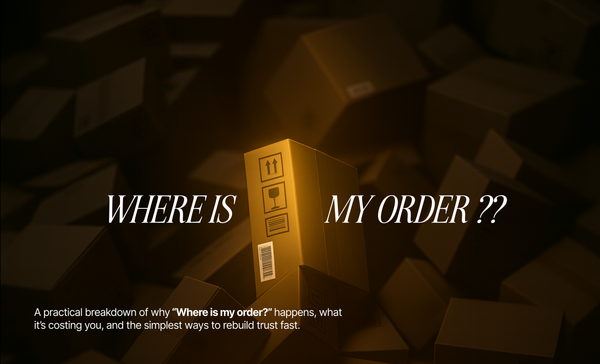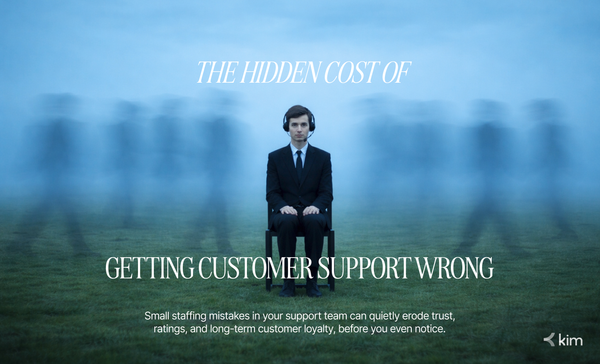Crisis Mode: How CRM Can Be Your Lifeline in a PR Disaster
Crisis? CRM is your lifeline! Get tips on using customer data to navigate PR disasters, rebuild trust & emerge stronger. #CRM #CrisisManagement

Imagine this: you wake up to a social media firestorm. Your brand, once beloved, is facing a PR nightmare. Angry tweets and scathing articles dissect a recent product malfunction or a misstep by your company. The situation is escalating quickly, and customer trust hangs in the balance.
In such a scenario, staying calm and communicating effectively are paramount. This is where a robust Customer Relationship Management (CRM) system becomes your crisis communication lifeline.
Here at Kim.cc, we understand the importance of building strong customer relationships. And during a PR crisis, those relationships become even more critical. A CRM allows you to manage customer communication effectively, minimize damage, and rebuild trust on the road to recovery.
Key Takeaways
- The Role of CRM in Crisis Communication
- Proactive Crisis Preparation
- Responding to a Crisis
- Rebuilding Trust
The Role of CRM in Crisis Communication
When a PR crisis hits, swift and organized communication with your customers is essential. A CRM provides a centralized hub for managing this communication, giving you access to several key advantages:
- Centralized Customer Data: Imagine trying to navigate a crisis without a clear picture of your customer base. CRM stores all relevant customer information, including contact details and communication preferences. This allows you to reach out directly to affected customers and tailor your message accordingly.
- Segmented Messaging: A "one-size-fits-all" approach to crisis communication doesn't work. The CRM allows you to segment your customer base based on factors like purchase history or engagement level. This ensures your message resonates with each specific audience segment.
- Tracking Customer Sentiment: During a crisis, it's crucial to stay on top of how your customers are feeling. CRM systems often integrate social media monitoring tools, allowing you to track customer sentiment and identify areas where your communication needs to be adjusted.
By leveraging these capabilities, a CRM empowers you to deliver targeted, transparent messages that address customer concerns directly. This fosters trust and allows you to regain control of the narrative even in the midst of a crisis.
Proactive Crisis Preparation
A crisis can strike at any moment. While you can't predict the future, you can be prepared. Here's how a CRM can be instrumental in proactive crisis management:
- Crisis Communication Templates: Don't wait until a crisis hits to craft your response. Use CRM tools to create pre-designed communication templates for different scenarios. These templates can be easily customized and deployed quickly, saving precious time when every second counts.
- Identify Key Stakeholders: Knowing who to reach out to during a crisis is crucial. Your CRM allows you to identify and manage a list of key stakeholders, including affected customers, media contacts, and internal teams.
- Monitoring Systems: Social media monitoring tools integrated with your CRM can help you identify potential problems early on. By tracking brand mentions and customer sentiment, you can address small issues before they escalate into PR disasters.
By taking these proactive steps, you ensure that your CRM serves as a well-oiled crisis communication machine when faced with a PR nightmare.
Responding to a Crisis
When a PR crisis does occur, a well-prepared CRM system empowers you to take decisive action. Here's how:
- Swift Acknowledgement: Don't shy away from the issue. Use your CRM to send a swift and sincere acknowledgment message to affected customers. Outline the steps your company is taking to address the problem and offer a sincere apology.
- Transparent Communication: Transparency goes a long way in rebuilding trust. Share regular updates within the CRM that explain the situation, outline corrective actions, and address customer concerns directly.
- Taking Ownership: Avoid deflection or blame game tactics. Use your CRM communication to acknowledge your company's role in the crisis and demonstrate a commitment to making things right.
Rebuilding Trust
A crisis may be a bump in the road, but it doesn't have to mark the end. By leveraging your CRM to manage communication effectively during and after the crisis, you can rebuild trust and emerge stronger:
- Follow-up Communication: Stay connected with your customers after the initial response. Use the CRM to track communication threads and ensure all concerns have been addressed.
- Ongoing Monitoring: Continue to monitor customer sentiment through CRM-integrated social media tools. This helps you identify lingering anxieties and allows you to offer further support if needed.
- Learning from the Crisis: Review your CRM data post-crisis to understand what went wrong and where communication gaps occurred. Use these insights to improve your crisis management plan and become more resilient in the future.
Conclusion
A PR crisis can be a defining moment for your brand. By proactively using a CRM and implementing the strategies outlined above, you can minimize the damage and emerge stronger. At Kim.cc, we offer a range of CRM solutions designed to help businesses of all sizes navigate challenges and build enduring customer relationships. Contact us today and let's discuss how Kim.cc can be your partner in weathering any storm and building a future of customer loyalty and success.



